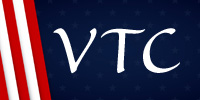How to Make Politics Less Divisive
Better Voting Methods and Proportional Representation
Our two-party system rewards divisive rhetoric. The defects of Choose 1 voting make matters worse.
Single Winner Elections
Replacing Choose 1 voting in single winner elections will provide fair and civil elections. Advanced voting systems let each voter support their favorite candidates and express their opinions on all candidates.
Candidates will need to reach out beyond their core supporters to win second-choice votes. Divisive rhetoric may backfire.
Partisan voters in primary elections value ideological purity, but they value winning more. They will look for candidates who support their views and can attract enough second-choice votes to win elections. Candidates will need to change their strategies and messages. Our campaigns will calm down.
More races will be competitive. Third-party and independent candidates will bring new ideas into election campaigns. Voters will have more choices and power.
Proportional Representation
Single-member districts cannot accurately represent American voters. Third parties are shut out. Most races are not competitive. Voters are sick and tired of being ignored.
Accurately stating the voters’ will is the chief benefit of proportional representation. Voters and politicians will also have more parties to choose from.
After enacting proportional representation, officeholders will build coalitions with a wider variety of colleagues and parties. To be effective, our representatives will need to work together.
We are not advocating for a parliamentary system. Instead, we want our representatives to consider issues individually and make larger compromises when needed.
How it Will Work on Good Days
Imagine a legislature with six parties, Republican, Libertarian, Populist, Democrat, Green and Progressive. Each party holds between 5% and 30% of the seats.
Republicans & Populists are working on cultural issues, but they need help. Libertarians are reluctant, so they talk to Democrats from socially conservative districts.
Progressives & Greens are working for stronger anti-trust laws. Republicans & Libertarians oppose these changes. Both sides work hard to woo Democrats and Populists.
Concerned lawmakers from all parties trying to lower prescription drug prices while providing generous rewards for the development of new medicines. They know their solution better be good, because big pharma lobbyists are tempting their colleagues.
Populists & Progressives want lower taxes for the working class and higher taxes on giant corporations. They seek help from Republicans and Democrats representing working-class districts.
Republicans want to make it easier for their rural and working-class supporters to vote and register to vote. Democrats, ever nervous about Republican intentions, want measures to ensure ballot security and accurate vote counting. Libertarians, Populists, Greens, and Progressives trust neither side on these issues as they recall the history of two-party abuse. Out of desperation, Republicans and Democrats talk to each other.
Yes, there will be bad days, but after a while we think our earnest legislators will realize that hating each other is no longer practical or necessary.


